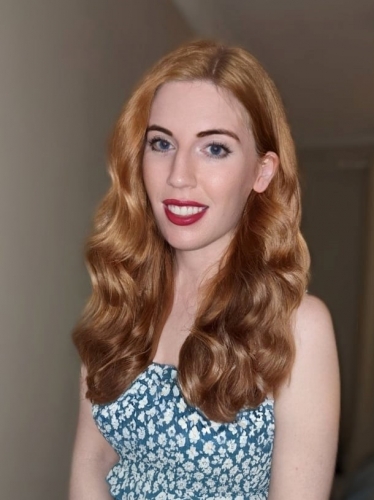Specialist women’s health nurses play a crucial role in counteracting the taboo that still exists around women’s health issues, and empowering patients with information and understanding.
For Jessica Davis, practice nurse at Jean Hailes' East Melbourne and Clayton clinic, it’s the little moments she has with women that make a big difference.
Subscribe for FREE to the HealthTimes magazine
“There's just small moments of glory throughout my week where I'm just like, ‘yep, this is exactly why I'm doing this’”, she told
HealthTimes.
“In the first two weeks of starting this job, where was a lady that I was able to chat to and she said to me ‘you've just saved me two weeks of anxiety for me and probably a meltdown, because now you’ve explained it to me, you've just relieved so much stress and panic.”
“I realise that information which may not be particularly remarkable to me, is absolutely critical to other women.”
“And by just listening to somebody and giving them the information that they deserve, you can really, really make a positive impact on someone's day and their outlook on things.”
Ms Davis said that while the degree of stigma surrounding women’s health is lessening, there’s still work to do.
“There is definitely still an element of shame about these issues, and shyness as well.”
“I find women get on the phone to me and I can feel that they're a bit uncomfortable trying to articulate themselves.”
“And then if you just give them the language they need and make them aware that you’re not there to judge them, you're here to just get information and give information, then they can really open up a lot more, and they'll have a giggle and get over it.”
“Unfortunately, more needs to be done so that women feel the way they should, and are comfortable to just chat about these things with friends, family, partners - whoever.”
“But I do feel very lucky that for the most part, I can be that comfortable person for a lot of people to reach out to.”
“I really, really love being able to empower women, just by giving them the right information, and explaining so many things that a lot of people find very hard to talk about.”
That’s not to say that specializing in women’s health is without challenges.
“Sometimes my heart does really break for the women that I speak with, because we are often faced with some really challenging things, and women can often be juggling a number of life stresses as well.”
“And there's times where all I can really do is just validate their struggle, and just try and encourage and support them to keep on persevering – but that doesn't really feel like enough sometimes.”
As many nurses can attest to, confronting distressing and emotional situations every day can take a toll – underscoring the importance of self-care.
“It’s not something that comes naturally to me, but establishing and maintaining a real firm work and life boundary is key. And that goes both ways.”
“So, when I'm at work, I put my personal phone to the side and I try not to respond to anything, social or personal, throughout my workday”, Ms Davis said.
“And then similarly, once I've left work, I really try to be mindful that all work-related communication can probably wait until the following day.”
“Of course, there are times when things are urgent, on both ends, and that rule can't always apply.”
“But overall, I really try to have boundaries either way. Once I am home, I try to leave work behind and then just engage with my loved ones and my hobbies.”
Ms Davis encouraged anyone who is seriously considering a career in women’s health to pursue it wholeheartedly.
“If you have a little fire in your belly, don't ignore it”, she said.
“I think if you've got a bit of passion there and you feel like there's a change that you want to make, or that you think that you've got a lot to give to a certain cause, I think you've really just got to take the leap and at least try.”
“Then, just keep trying until you can find your fit – because I found mine here and I absolutely love it.”













